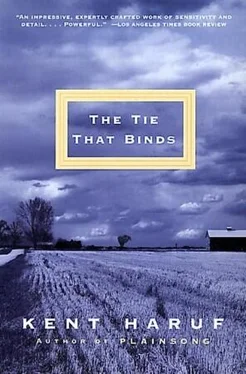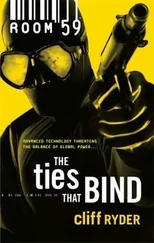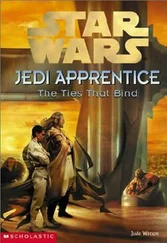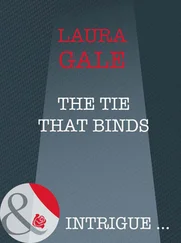“There must be something,” she said. “I’ve just got to think of it.”
I sure as hell didn’t have any answers. So I left then and Rena and I went home for supper. Rena didn’t go back to the Goodnoughs’ again by herself. In the next eight or nine months Mavis or I took her often to see Edith, to visit in the kitchen or to do things outside in the yard during the summer, but she didn’t play travel with Lyman anymore. Lyman had almost stopped playing travel himself. He managed, I think, to take a few brief imaginary trips to Denver, but that was about all. Of course all that time Edith was still taking care of him. With patience and kindness, and yes, love, too. Only you’d have to have seen that yourself. I don’t know how to tell you about it.
ALL I KNOW how to tell you is that sometime between March and December Edith Goodnough decided by herself what to do with her brother. She didn’t consult anyone. It isn’t the sort of thing you can discuss with anybody else. What in the hell are you going to say? — look here now, if I do this and this, do you think it’ll turn out all right? No, Edith made up her own mind. It had to be her own private, solitary decision.
But I can tell you what it was she decided. I was there for the ending. And in these past three and a half months she’s had time to tell me the rest, to tell me how she filled those hours that led up to the end. We’ve talked a lot about it in that hospital room in town since the beginning of this new year. I’ve held her hand, watching that slow drip pushing life back into her through a sterile needle in her other arm, life she didn’t much want or care to continue anymore. I’ve seen her sleeping with her gray, troubled face turned toward me on a white pillow, been there too when she woke and asked, “Are you still here, Sandy?”
And I’ve said, “Yes. I’m still here. I’ll be here for a while.”
So I didn’t leave her and we would talk. She seemed to want to talk about it. Of course I was interested.
She said she woke that morning later than she wanted to. There was already more than enough light in the living room for her to be able to see Lyman clearly over there against the opposite wall in his cast-iron bed with the yellowing postcards pinned on the walls above him, the wallpaper itself discolored now behind the curled edges of the old postcards. She said she was a little panicky when she realized the hour. She had a lot to do. She got up out of bed in a hurry, dressed in house clothes, and went out to the kitchen to start coffee. When the coffee was going good she returned to the living room and woke her brother. Ordinarily she let him sleep until he woke on his own, and by December it was not unusual for him to sleep until noon when he would rise and shuffle about the house until she fed him and found some task for him to do, but that morning she woke him early so that they could eat breakfast together. Also, she wanted to be certain that he would go to bed promptly after supper. She had it all planned. It should have worked, too.
They ate a breakfast of poached eggs, buttered toast, and coffee. Afterwards she did the dishes while Lyman shaved himself in the bathroom. When she went in a little later to lay his clothes out she found that he was still in the bathroom studying himself in the mirror. He had cut his neck along the gray folds of loose skin under his chin, and he seemed to be amused by the trickle of blood dripping onto the whiskers and gray lather in the sink. It wasn’t a bad cut, but it was bleeding enough to entertain him. She stanched it with toilet paper. Then she cleaned him up and got him dressed in his customary white shirt, dress pants, and slippers, and sat him down in a chair under a lamp in the parlor so he could look at pictures. She had planned that too. Several months earlier she had taken a subscription to National Geographic magazine with those colored pictures in mind. When the issues had begun to arrive she had kept them for a later date, and that morning she gave him two magazines to look at. Like a bald-headed child, he sat in his stuffed chair with a good light behind him and studied the pictures of Eskimos and marine life and wide-hipped Hawaiian women dancing for him in color on the page in his lap. He was satisfied for a while.
So Edith put on her winter coat and scarf and went outside. She took the old mongrel dog with her. The dog waddled around the corner of the house to its usual place and scratched feebly at the frozen ground to cover its dump. Edith went on under the bare elm trees, through the picket gate, and out across the gravel to the chicken house, where she poured chicken feed into a trough. There were no eggs to gather, not now in December, so she merely stood there for a few minutes in the dim close air of the chicken house watching the six or seven chickens scratching in the hard dirt, pecking at old frozen food scraps, their loose tomato-colored combs jangling and tossing. When she went back to the house the dog was whimpering on the porch steps. It was a cold day, dry and cold and bright.
Inside the house again, she sat down to catch her breath. Lyman was still bent in satisfaction over his National Geographies . When she felt rested she took him a cup of strong coffee. She asked him if he liked the magazines.
“Huh?” he said.
“The magazines, Lyman. Are you enjoying the pictures?”
He looked up at her out of his faded eyes as if he was coming out of some fog, as if she had interrupted some deep thought of his. His spotted head shone like water.
“They got a lot of pictures.”
“Yes,” she said. “I saved them for you. But maybe you should go to the bathroom now.”
“What for?”
“All right, later then. Remember to drink your coffee before it gets cold.”
So the morning passed quietly for them. Later she made a pie, rolled the thin crust out onto the counter in the way her dead mother had taught her seventy-odd years ago, and filled the crust with pumpkin batter. She was well pleased, she said, with the result. Pumpkin was Lyman’s favorite — not that it mattered much to him what he ate now, or if he ate at all; I suppose it all tasted like oatmeal mush to him by this time. But she was pleased nevertheless. She wanted things done right.
Then the phone rang, and that turned out to be a good thing too. It was Mavis calling from town. Mavis said that she and Rena were at the grocery store and they wanted to know if there was something Edith needed. “They’ll be closed tomorrow,” Mavis said.
“That’s right, they will.”
“So Rena said we had to check with Edith.”
“Wasn’t that nice of her?” Edith said. “Well. Let me think. Let’s see — yes, if they have some fresh cream. I forgot that.”
“Anything else?”
“If there is, I can’t think of it right now. I guess not.”
They talked for a minute more and hung up. Edith said later she didn’t mind lying about the cream. It was a lie, though. In the refrigerator on the top shelf she knew very well that there was already a full, unopened half-pint of cream, more than enough to whip for Lyman’s pie. But now she was glad she had lied. She said she was even a little bit proud of herself for having thought so fast on the phone. It meant that she would be allowed to see Rena and Mavis once more. That had been the one thing she hadn’t been sure of accomplishing — and she wanted very much to see Rena again. Now that too was going to happen. So she went directly from the phone to the refrigerator and took the half-pint of cream and poured it into the sink. Then she made lunch.
Lyman was not at all hungry, she said. Stooped over his bowl of tomato soup, he played with his spoon, stirring the red stuff around in the bowl, and ate only a bite or two of his cheese sandwich. He was tired, wilted, glassy eyed; the early morning had exhausted him, she knew that, and he was ready now to lie down on his bed in the living room. But she just couldn’t permit it. Not yet, she couldn’t. She told him she had two more magazines for him to see.
Читать дальше












